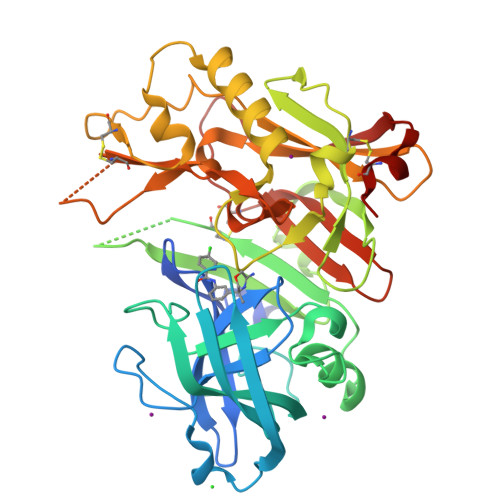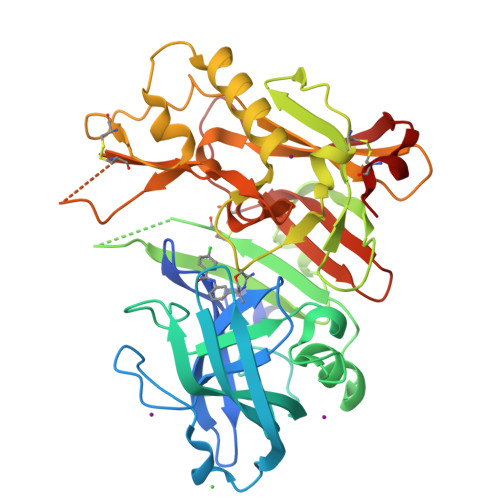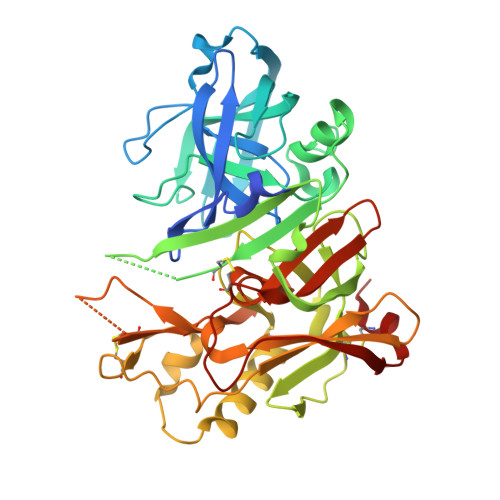1,4-Oxazine beta-Secretase 1 (BACE1) Inhibitors: From Hit Generation to Orally Bioavailable Brain Penetrant Leads.
Rombouts, F.J., Tresadern, G., Delgado, O., Martinez-Lamenca, C., Van Gool, M., Garcia-Molina, A., Alonso de Diego, S.A., Oehlrich, D., Prokopcova, H., Alonso, J.M., Austin, N., Borghys, H., Van Brandt, S., Surkyn, M., De Cleyn, M., Vos, A., Alexander, R., Macdonald, G., Moechars, D., Gijsen, H., Trabanco, A.A.(2015) J Med Chem 58: 8216-8235
- PubMed: 26378740
- DOI: https://doi.org/10.1021/acs.jmedchem.5b01101
- Primary Citation of Related Structures:
5CLM - PubMed Abstract:
1,4-Oxazines are presented, which show good in vitro inhibition in enzymatic and cellular BACE1 assays. We describe lead optimization focused on reducing the amidine pKa while optimizing interactions in the BACE1 active site. Our strategy permitted modulation of properties such as permeation and especially P-glycoprotein efflux. This led to compounds which were orally bioavailable, centrally active, and which demonstrated robust lowering of brain and CSF Aβ levels, respectively, in mouse and dog models. The amyloid lowering potential of these molecules makes them valuable leads in the search for new BACE1 inhibitors for the treatment of Alzheimer's disease.
Organizational Affiliation:
Neuroscience Medicinal Chemistry, Janssen Research & Development, Janssen Pharmaceutica NV , Turnhoutseweg 30, B-2340 Beerse, Belgium.



















